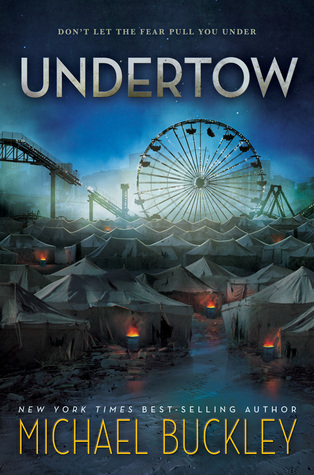
SCHOOL bullying is a sad fact of life.
Most of us experience it at some stage in our youth, even if only on a minor scale, and then move on none the worse for it.
A minority are scarred by it, occasionally resulting in tragic outcomes.
Such is the backdrop to Late Company, the latest play to get an airing at the excellent Finborough Theatre in London’s Chelsea. But the play, written by (talented) Canadian Jordan Tannahill, is more than a story about the awful consequences of school bullying which results in a young lad’s suicide. It looks at the messy aftermath and the attempt by grieving parents to get explanations as to why their son was driven to suicide.
The play is set in the living room of Michael and Debora Shaun-Hastings, a well to do Toronto couple. Michael is a Conservative politician (a ‘Red Tory’) and Debora (dressed in blacks and greys) a successful artist as evidenced by the metal sculptures that adorn the room (one of massive phallic proportion).
They stand nervously around the dining table awaiting the arrival of Bill and Tamara (‘Tam’) Dermot and their son Curtis. The bristling, moody and surly Curtis is one of the boys who bullied Joel Shaun-Hastings the most, posting nasty comments about his sexuality on his facebook page and being part of a gang that smeared faeces on Joel’s school locker door.

The meeting is meant to provide Debora and Michael with explanations and answers as to why their son took his own life. But the answers they get are not what they expect or want. An unrepentant Curtis does not provide what Debora is looking for. As she drinks more, she strikes verbally like a viper at Curtis, his parents and her own husband.
Curtis reads out a letter of apology for his bullying of Joel. But Debora is singularly unimpressed. ‘Did you write that yourself?’ she asks. ‘Do you really feel anything about this?’ ‘It just strikes me that your letter – it felt disingenuous. Do you know what that [word] means?’ Words spitting with venom.
In one moment, Bill cuffs Curtis around the head for calling him and Tam ‘fucking morons’. Debora’s response is emphatic: ‘Do not hit your son in my house.’ Turning to Tam, she asks: ‘Does he give you little smacks too?’
The more she goes on the verbal attack, the more Bill and Tam hit back, questioning Debora’s part – and that of Michael’s – in Joel’s decision to take his own life.
For example, their failure to realise Joel was posting provocative videos highlighting his sexuality and attacking his school friends. And their decision not to reveal to the world in the aftermath of Joel’s death that he had long standing mental health issues which probably played a part in his suicide.
The Dermots also defend their son fiercely. ‘What he did was cruel,’ admits Tam. ‘But I don’t think he is a cruel person.’

It is gripping drama out of which no one and nothing escapes unscathed. Michael comes over as an absent father more interested in pursuing his own career than providing a listening ear for Joel. Debora’s and Michael’s relationship is all-too fragile while the parenting of earnest couple Bill and Tam is also open to question. Curtis is all testosterone and attitude.
It makes for an emotional 85 minutes. On occasion it is tear inducing and it is not without its moments of much needed humour.
A particularly poignant moment comes when the Dermots realise Debora has laid the table for six – a place for Joel. Another is when Debora recalls coming home and discovering Joel’s body in the bathroom. Then there are the five favourite photos she has kept of Joel including the one where he is jumping off a dock. ‘Doesn’t it look like he’s just standing there on the water? I mean a second later and he’s gone but in that moment he’s just hovering, looking right into the camera. Like he would stand forever and never go under.’
A degree of reconciliation between the families provides a happier ending than the audience is led to expect.
The cast is excellent with Lucy Robinson portraying Debora perfectly – an intelligent parent consumed with grief and left with unanswered questions, one moment raging, the next shedding tears and then smiling at the memories of her beloved son.
Todd Boyce plays Michael perfectly, a more controlled individual than Debora (guilt?) although occasionally he rages at the Dermots. Alex Lowe and Lisa Stevenson are also superb as Bill and Tam – a couple who do not share the Shaun-Hastings’ airs and graces but who stand up for their son against the verbal assaults from Debora.

David Leopold (Curtis) completes a superb cast. Moody, socially awkward and monosyllabic most of the time.
‘Alto sax’, he barks at one stage when his father talks about giving up a period of self-employment because he had had no idea Curtis was playing the ‘alto’. ‘There’s no instrument called the alto.’
A serious play about a key issue of our time. It should be seen by all school bullies and all parents with kids at school who are concerned they may be victims of bullying – or instigators of it.
Of course it will not be.
Late Company plays until May 20. As with most Finborough Theatre productions I cannot recommend it highly enough. Visceral theatre. A play for – and of – our times.
For more info visit: http://www.finboroughtheatre.co.uk
Late Company – 5/5
Playwright: Jordan Tannahill
Cast: Todd Boyce, David Leopold, Alex Lowe, Lucy Robinson, Lisa Stevenson
Director: Michael Yale
Set and costume designer: Zahra Mansouri
Lighting designer: Nic Farman
Sound designer: Chris Prosho
Casting director: Annie Rowe
Thank you for reading. Please like, share and comment!
Also read: Do Your Duty – go to a Sarah Gillespie gig
An Arthur Miller Gem – Incident at Vichy
James Recommends – The Shallows (Film Review)
Share this:





